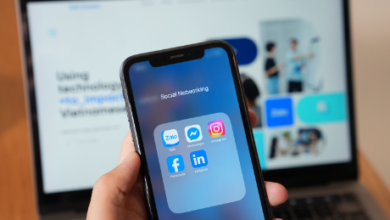Talent Acquisition in the Modern Workplace

Introduction
Securing the best talent is no longer just about finding someone to fill a role; it’s about strategically creating a robust, adaptable, and deeply engaged workforce that can thrive in today’s ever-evolving business landscape. Talent acquisitions have grown far beyond simple recruitment. Rapid technological advances and evolving employee expectations fundamentally reshape how organizations identify, attract, and retain talent. In the modern workplace, successful companies look not just for skills or pedigree but for individuals whose personal values align with organizational culture, who can innovate, and who can help shape inclusive, future-focused environments. The goal is to build an agile team poised for long-term excellence.
As hiring practices adapt at an unprecedented pace, understanding and embracing the latest trends in talent acquisition is vital. This article explores the fundamental shifts propelling the future of recruitment, including the integration of artificial intelligence, the growing emphasis on soft skills, the critical importance of diversity and inclusion, remote and hybrid work adoption, data-driven decision making, employer branding, and the need to provide exceptional candidate experiences. Each trend is interlinked, reflecting a holistic approach to building stronger organizations from the inside out.
AI Integration in Recruitment
Integrating Artificial Intelligence (AI) has become a game-changer in recruitment and talent acquisition. Modern hiring platforms rely on sophisticated AI-driven algorithms to streamline critical steps such as resume screening, candidate sourcing, and initial interviews. With AI analyzing massive pools of applicants faster and more objectively than any human team could, organizations save time while improving efficiency and accuracy. AI systems not only match candidates to roles based on skills and experience but can also draw on broader data—such as social media activity and cultural traits—to predict job fit and potential for success.
However, while AI can enhance objectivity and reduce human error, it’s essential to recognize that algorithms are only as fair as the data they’re built upon. If historical hiring data contains biases, those can easily be perpetuated by automated systems. Organizations must commit to careful, ongoing monitoring, with transparent, regularly audited algorithms adapted to ensure fairness and equity. Trusted AI-driven talent acquisition is about combining the unmatched speed of machines with the discernment and values of a human touch.
See also: WhatsApp API Cost Guide for Businesses: What to Expect
Emphasis on Soft Skills
Technical skills may open the door, but soft skills retain employees and drive teams to extraordinary results. Increasingly, organizations recognize that abilities such as communication, adaptability, critical thinking, and emotional intelligence are crucial for enabling real-world business success. Soft skills foster collaboration, creativity, and resilience amidst continuous change. According to research by Radancy, organizations prioritizing a skills-first approach enjoy more agile teams with the flexibility to innovate and excel, regardless of industry disruptions.
This shift means employers now look beyond traditional qualifications and years of experience and seek out those who bring fresh perspectives, empathy, and leadership potential. By focusing on soft skills, employers broaden their talent pools, foster a culture of diversity, and gain the agility needed for future-proof growth. Furthermore, those with strong soft skills help shape adaptable, egalitarian workplace environments that promote ongoing learning and shared purpose.
Diversity, Equity, and Inclusion (DEI)
Building diverse, equitable, and inclusive workplaces has become a strategic imperative driven by social awareness and clear evidence of better business results. Organizations now employ various tactics—including blind recruitment processes, AI that flags historical bias, and structured interviews—to foster unbiased hiring practices. As highlighted in research published on arXiv, embedding DEIstandards within AI frameworks is vital. This means monitoring for bias and proactively designing systems intended to identify and break down existing barriers to opportunity and advancement.
Forward-thinking companies seize DEI as a competitive advantage, realizing that inclusion enhances problem-solving, sparks innovation, and builds trust with employees and customers. Effective DEI strategies reach beyond regulatory compliance, forming integral elements of organizational mission, everyday practice, and leadership accountability—from recruitment and onboarding to every stage of the talent lifecycle.
Remote and Hybrid Work Models
The rise of remote and hybrid work has dramatically expanded talent acquisition, forever altering the recruiting landscape. By removing traditional geographic boundaries, organizations can access global talent, cultivating diverse teams with diverse perspectives and experiences. Digital tools such as video interviews, online assessments, and virtual onboarding have become standard, ensuring seamless integration of remote team members while maintaining productivity and engagement at scale.
This evolution isn’t just about practical logistics—it fundamentally redefines work-life expectations. Flexible arrangements attract candidates seeking balance and autonomy, making organizations more attractive to top-tier talent. This focus on flexibility also helps to retain loyalty and employee satisfaction and ultimately improves performance across every business level.
Employer Branding and Employee Advocacy
A strong employer brand is an invaluable asset in the battle for talent. Companies that invest in transparent, authentic communication about their culture, values, and mission—and who live those values daily- set themselves apart in a crowded labor market. Strategic use of digital platforms and social media enables organizations to reach potential candidates where they’re most active, sharing stories highlighting what makes their workplaces unique.
Employee advocacy is even more impactful. When current employees share their genuine, positive experiences working at a company, their stories build trust and shape public perception in a way that paid advertising alone cannot achieve. Strong employer branding not only draws fresh talent but also increases engagement and loyalty among current team members, reinforcing a cycle of shared purpose and long-term retention.
Data-Driven Decision Making
The rise of analytics has brought unparalleled precision and continual improvement to the recruitment process. Organizations can identify pain points, optimize strategies, and deliver consistently better results by tracking metrics such as time-to-fill, quality-of-hire, cost-per-hire, and candidate experience. Data-driven approaches illuminate which sourcing channels work best, where bottlenecks appear, and which candidates are likeliest to succeed and stay for the long term.
GP predictive analytics empower companies to forecast future talent needs based on historical trends and anticipated business growth. This proactive approach allows for more innovative workforce planning and a more agile, responsive recruiting function that supports evolving organizational strategy while minimizing gaps in key roles.
Internal Mobility and Employee Development
Attracting top candidates is just the beginning; retaining and developing them is essential for sustained organizational health. Today’s leading companies encourage internal mobility through structured career paths, mentorship programs, and robust training or upskilling opportunities. By investing in employee advancement and fostering continuous learning, organizations reduce turnover and cultivate a motivated, loyal workforce ready to adapt to new challenges.
Promoting from within not only builds morale and engagement but also helps preserve and transfer institutional knowledge. Strong internal development programs make companies more resilient to market changes and more likely to nurture the next generation of leaders from within their own ranks.
Candidate Experience and Personalized Communication
Today’s applicants expect an efficient and highly personalized candidate journey. A transparent, responsive process with regular updates, individualized feedback, and customized job suggestions shows respect for candidates’ time and ambitions. Leveraging recruitment marketing automation tools enables organizations to nurture talent pools at scale, providing tailored communication that keeps prospects engaged from initial application to onboarding.
Delivering a positive candidate experience enhances your reputation as an employer of choice and increases the likelihood of high-quality candidates accepting offers—and even reapplying for future roles if the fit isn’t right this time. Memorable recruitment experiences become vital to employer branding and long-term talent attraction.
Organizations must continually reimagine their talent acquisition strategies to remain competitive in the modern workforce. Embracing cutting-edge technology, fostering diversity and inclusion, and investing in data analytics and a people-first approach will be essential in building agile, resilient teams ready to succeed in an unpredictable future.




